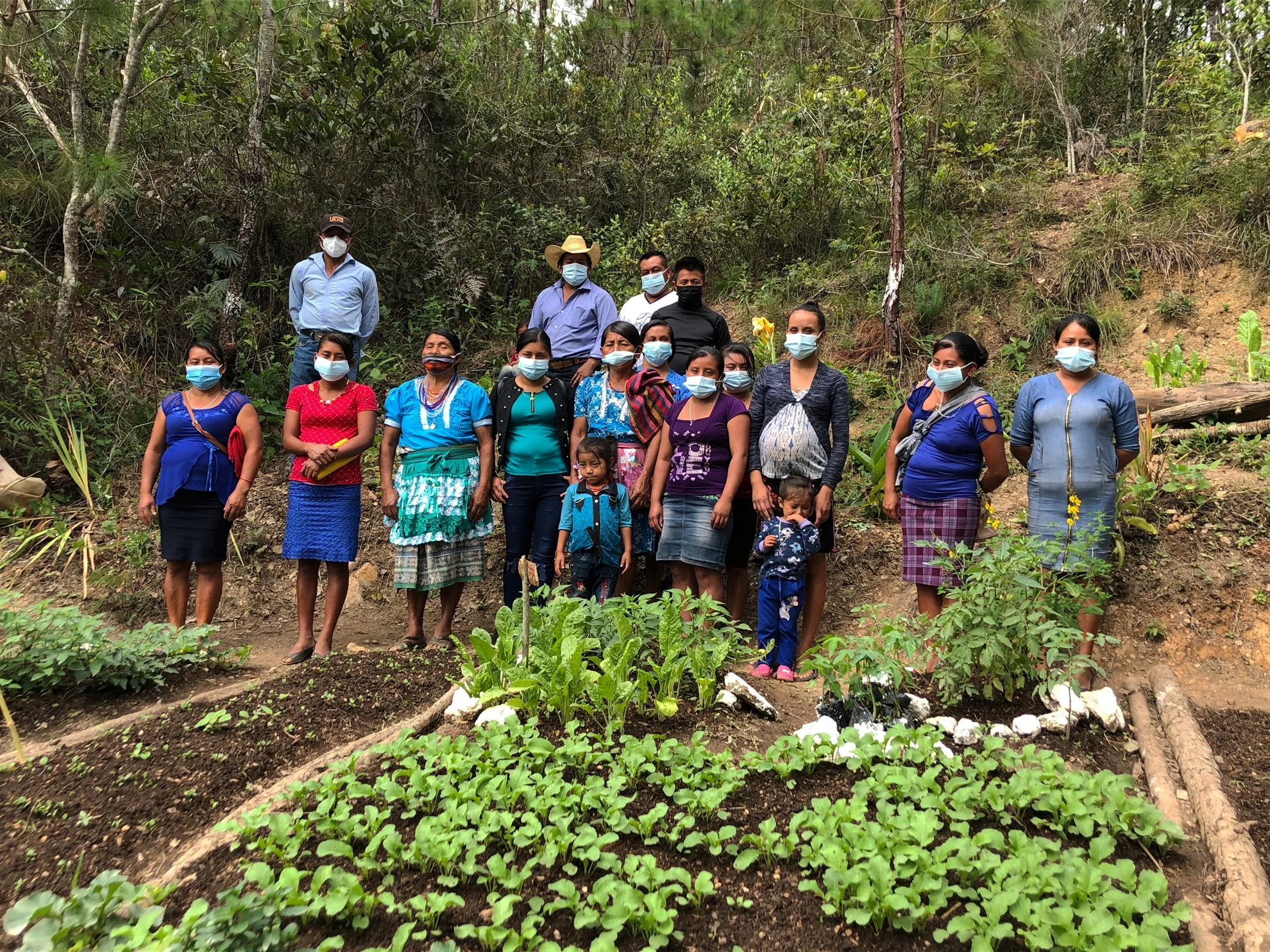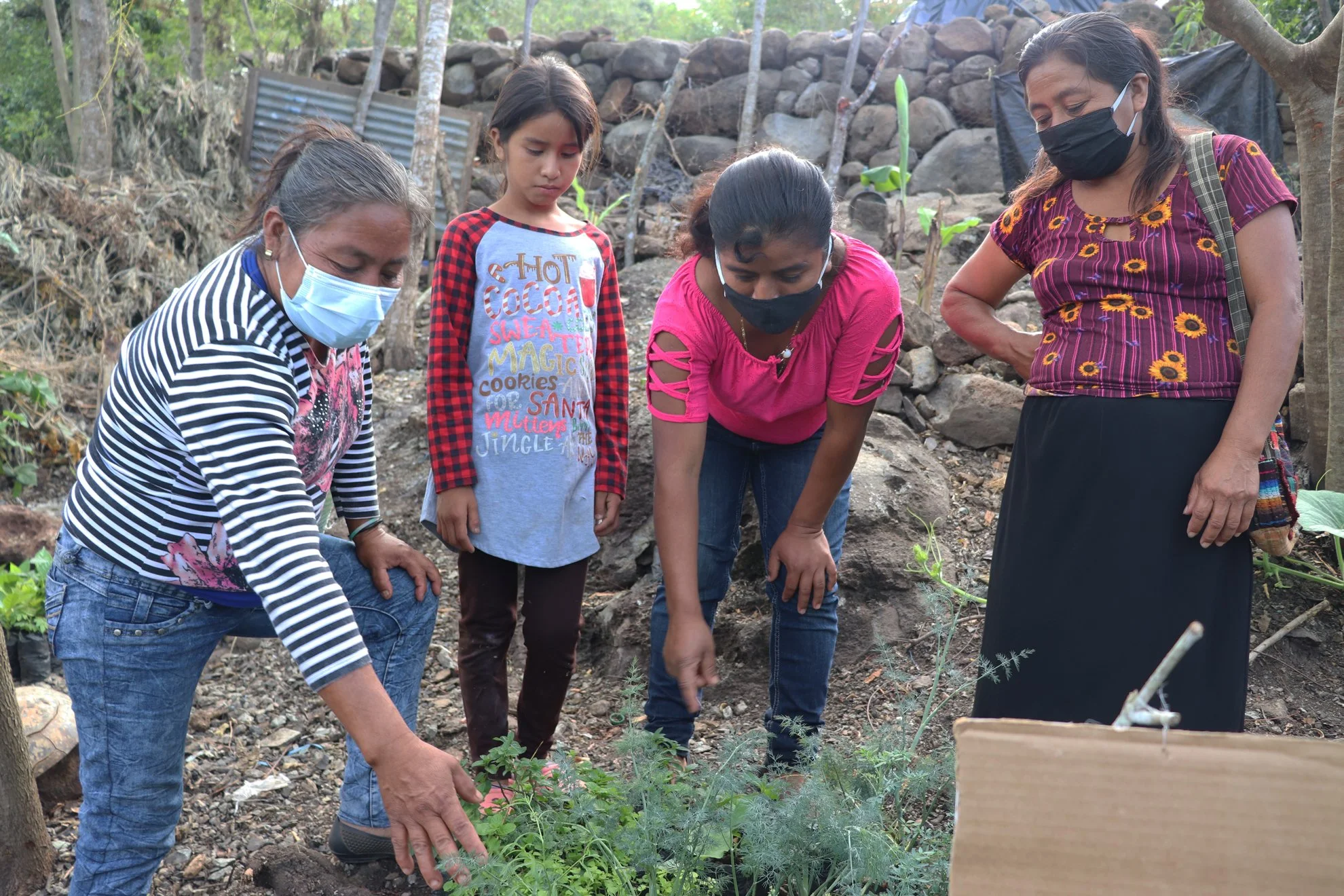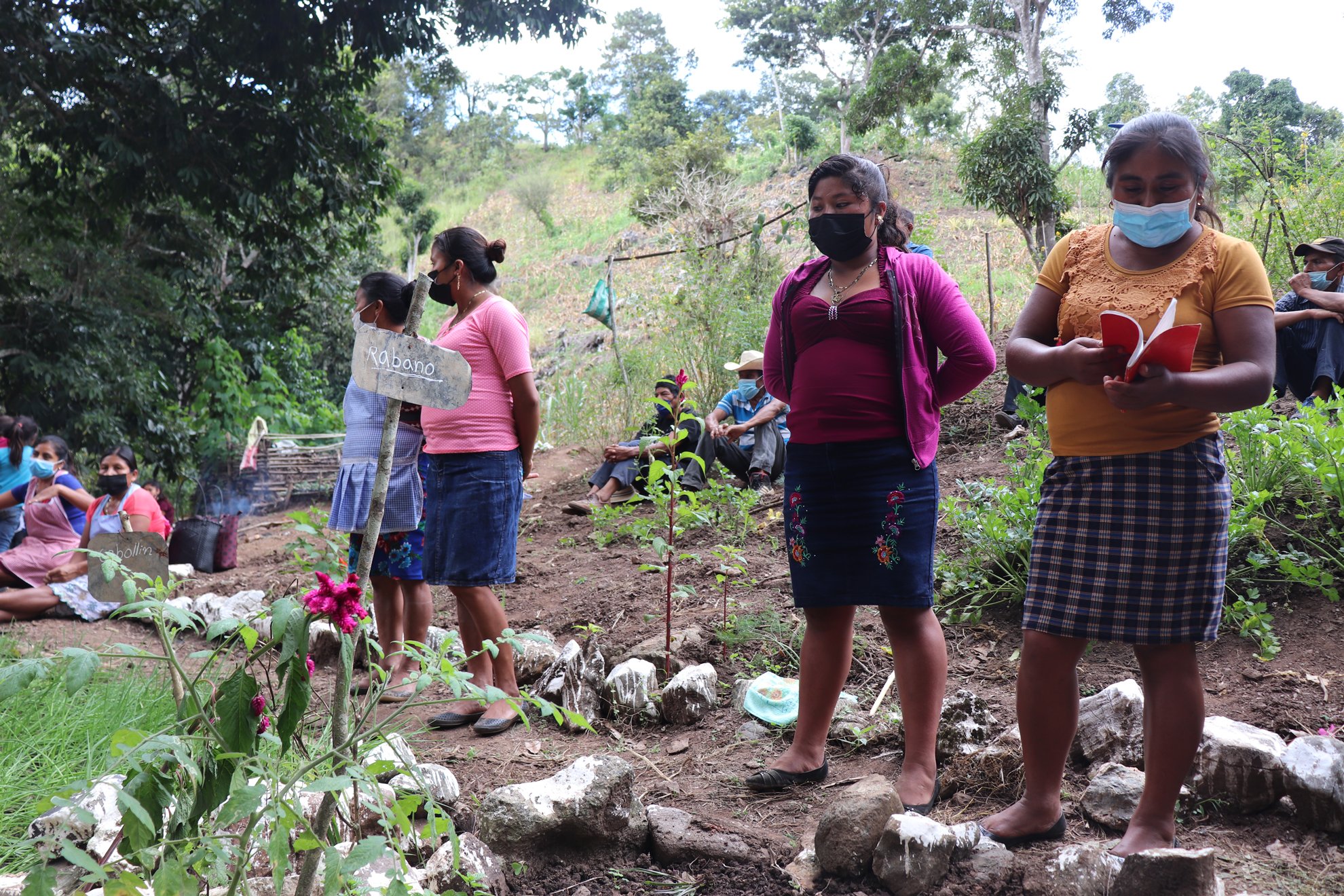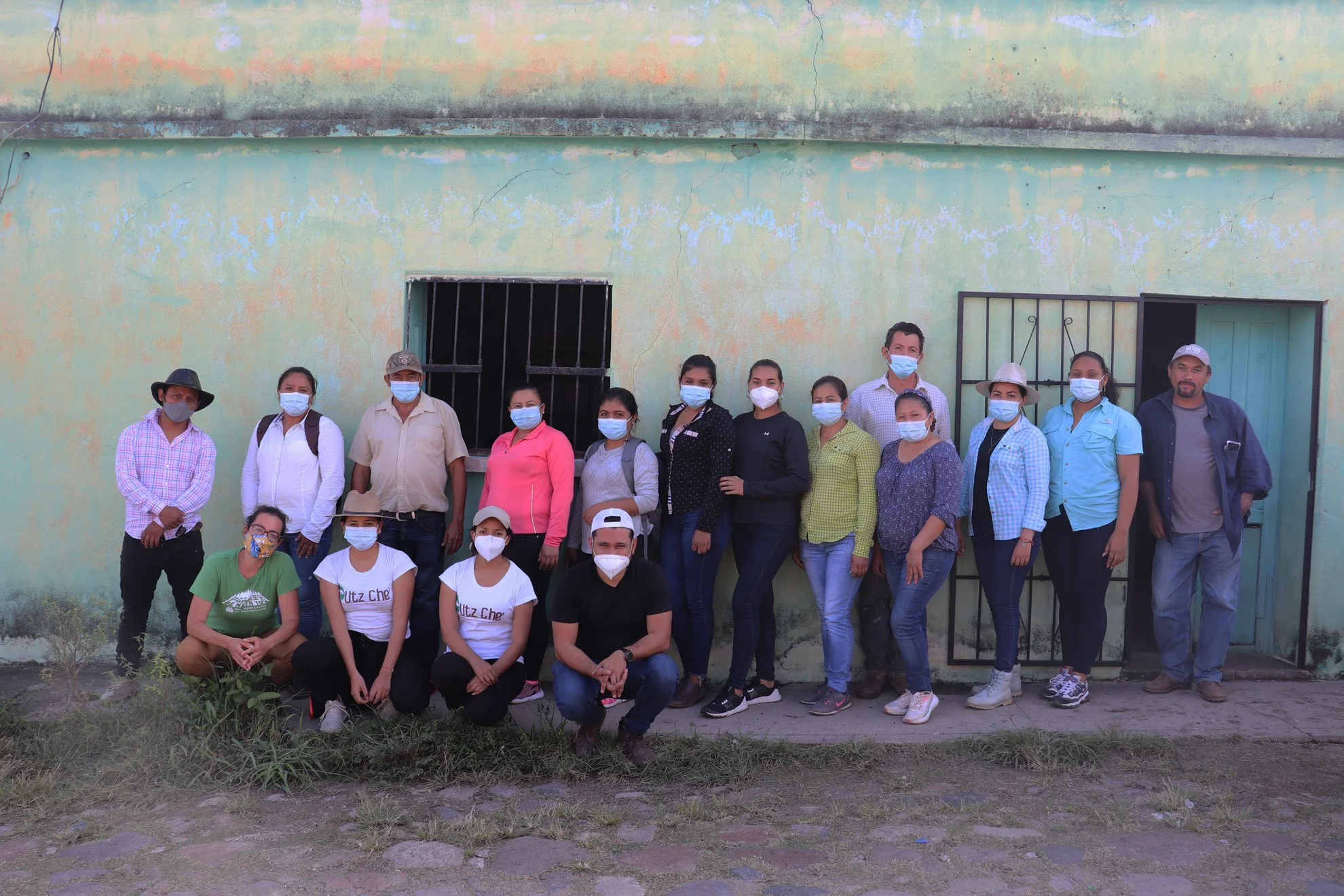Women Reclaiming their Rights and Legacy
The women’s group “Las Vencedoras’ in Buena vista standing in front of their community garden.
Back in October, my colleague Valentina and I traveled to Guatemala to do some field visits in the East and Southern region of the country. It was the first time coming back to the field since the pandemic hit, and it was the first time visiting new communities in the Departments of Jalapa and Jutiapa (East).
Little did we know that not only were these communities working non-stop, but that their optimism and faith was stronger than ever. The women leaders in each of these communities we visited were so passionate and empowered that it was an emotional journey for the TWP and Utz Che’ staff.
The first highlight of this trip was our visit to three different community gardens in Aldea Nueva, La Ceibita, and Piedras Negras in the Department of Jalapa. Visiting these locally run community gardens, managed by three incredible women’s groups and community councils was truly inspiring. Right as you stepped into the gardens you sensed the humbleness, collaborative work, and the amount of ancestral knowledge these communities had on food and medicinal plants. More importantly, it was seeing women leaders emerge and passing this knowledge to other women and young girls in the community, including their daughters. This project was giving women the autonomy to grow their own food, share and sell it in their communities, while also supporting other families with basic needs: food and healthy lifestyles.
Women’s Group “Las Maravillas” in the community of Piedras Negras, showing their garden beds and medicinal plants
Women’s Group “Flor del Café” in La Ceibita, presenting their group and community garden.
The second highlight was visiting the community of Quezada, located in the Department of Jutiapa. This historical communal organization was established in 1859 with 156 people self-identified as Xinca (Xinka) descendants. Since its inception, the community of Quezada has faced multiple threats like mining, deforestation, patriarchal violence, and agroindustries. The community’s main goal is to keep fighting for their territory—defend it from environmental threats and protect their communal forest for future generations. Women played and continue to play an active role in land protection, regeneration, and the fight and resistance of Quezada’s territory. The community, including the male community governance, saw an urgent need to strengthen womens’ voices and leadership in the community assembly, through the establishment of an entity dedicated to gender equality.
In 2019, the women’s council was established, and was reactivated in 2021 with 32 newly elected female members as part of the Rise Challenge Program. These women are continuing the legacy of their Xinca ancestors, and playing a larger role in Quezada’s governance, notably by protecting their communal forest from fires, and maintaining a biodiverse and bountiful tree nursery. The best part of this group was that the majority of the women were younger, they were motivating each other, and reclaiming their rights as women leaders in their community. Inspiring others (men and women) and future generations to do the same! This trip filled all of our cups, and motivated us to keep fighting for special people and places like Guatemala.
Members of the women’s council and communal assembly of Quezada, and Utz Che’ staff, standing in front of their historical assembly building
Women’s council giving Utz Che’ and TWP staff a brief history of their territory and the resistance they created to protect their forest and natural resources.






